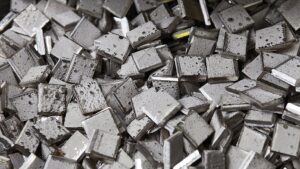
In January-August this year, Ukrainian companies increased imports of nickel and products by 68.5% compared to the same period in 2023 to $18.6 million (in August – $1.620 million).
At the same time, exports of nickel and products amounted to $508 thousand (in August – $85 thousand), while in January-August 2023 it was $201 thousand.
In 2023, Ukraine decreased imports of nickel and products by 74.2% compared to 2022, to $15.391 million.
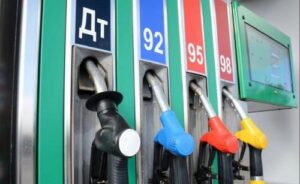
PJSC Ukrnafta imports gasoline and diesel fuel according to Euro-5 standards from Sweden, Poland, Lithuania, Greece, and Kuwait, the company’s press service reports.
In particular, it is diesel fuel and gasoline produced by Preem (Sweden), Orlen (Poland), Kuwait National Petroleum Company (Kuwait), Hellenic Petroleum and Motor Oil Hellas (both Greece).
“Ukrnafta is Ukraine’s largest oil producer and operator of a national network of filling stations. In March 2024, the company took over the management of Glusco assets and operates 545 filling stations – 460 owned and 85 managed.
The company is implementing a comprehensive program to restore operations and update the format of its filling stations. Since February 2023, Ukrnafta has been issuing its own fuel coupons and NAFTA cards, which are sold to legal entities and individuals through Ukrnafta-Postach LLC.
Ukrnafta’s largest shareholder is Naftogaz of Ukraine with a 50%+1 share. In November 2022, the Supreme Commander-in-Chief of the Armed Forces of Ukraine decided to transfer to the state a share of corporate rights of the company, which belonged to private owners and is currently managed by the Ministry of Defense.
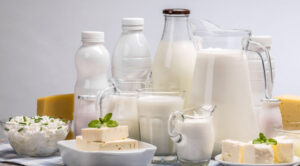
In January-August 2024, Ukraine increased its foreign trade in dairy products by 7.9% to $307 compared to the same period last year, the Union of Dairy Enterprises of Ukraine (UDEP) reported on its Facebook page.
According to the report, the negative balance of exports and imports of dairy products slightly increased compared to the same period last year and amounted to -$32.6 million against -$31.2 million. At the same time, imports were 1.24 times higher than exports; in January-August 2023, this excess was 1.25 times.
According to analysts, exports in January-August 2024 increased to $137.3 million, which is 8.3% higher than in the same period last year.
The growth in exports compared to the previous year was recorded for fermented milk products (+27% in physical terms and +32% in value), whey (+43% and +38%, respectively), and cheeses of all kinds (+40% and +31%, respectively).
At the same time, exports of butter and milk fats decreased significantly (-25%), while the drop in value amounted to 9%, which is explained by a significant increase in prices for these products this year.
Experts noted that import volumes in January-August 2024 increased by 7.6% compared to the same period last year – up to $170 million. At the same time, growth is observed in the categories of butter and milk fats – 2.3 times in volume terms, twice in value terms, as well as cheeses (+8% in volume terms).
Ukraine also reduced imports (in physical terms) of milk and cream not condensed (drinking) by 3.3 times, whey by 28% and fermented milk products by 16%, the UGCC summarized.

Bulgaria is interested in importing sunflower seeds, wheat, corn and milk powder from Ukraine, said Nikolay Nenchev, Chargé d’Affaires of the Embassy of the Republic of Bulgaria in Ukraine, during a meeting with Taras Vysotsky, acting Minister of Agrarian Policy and Food of Ukraine.
According to the press service of the Ministry of Agrarian Policy and Food, Nikolay Nenchev assured that Bulgaria is ready to continue to help and cooperate with Ukraine, to facilitate the transit of Ukrainian agricultural products to the country’s seaports.
Vysotsky, for his part, noted that Ukraine highly appreciates cooperation with Bulgaria and its assistance in exporting agricultural products.
“Ukraine and Bulgaria have always had a constructive dialog on various issues. This contributes to the strengthening of bilateral relations between Ukraine and Bulgaria,” the acting minister summarized.
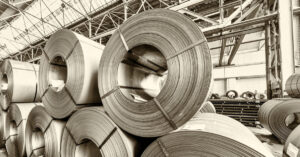
In January-July this year, Ukrainian enterprises increased their consumption of rolled metal products by 1.67% year-on-year to 2 million 34.6 thousand tons.
According to a press release issued by Ukrmetallurgprom on Monday, 711.6 thousand tons, or 34.97% of the domestic rolled metal consumption market, were imported during this period.
According to Ukrmetallurgprom, in January-July 2024, steel companies produced 3.728 million tons of rolled metal products (128.4% compared to the same period in 2023), of which, according to the State Customs Service of Ukraine, about 2.405 million tons, or 64.5%, were exported. In January-July 2023, the share of exports amounted to 51.3% (1.490 million tons against a total production of 2.903 million tons of rolled steel).
The share of semi-finished products in export deliveries in January-July 2024 amounted to 46.90%, which is the same as in January-July 2023 (46.11%). The share of flat products in export deliveries in seven months of 2014 is significantly higher than in January-July 2023 (39.83% and 34.77%, respectively). The share of long products is significantly lower than in January-July 2023 (13.26% in 2024 vs. 19.13% in 2023).
“In 7 months of 2024, the domestic market capacity amounted to 2034.6 thousand tons of rolled steel, of which 711.6 thousand tons or 34.97% were imported. In January-July 2023, the domestic market capacity was 2001.2 thousand tons, of which 588.2 thousand tons or 29.39% were imported. Thus, for 7 months of 2024, there is an increase in the domestic market capacity by 1.67% compared to 7 months of 2023, with a simultaneous increase in the share of the import component by 5.58%,” the press release states.
The structure of imports in January-July 2024 is still characterized by a significant dominance of flat products over long products (79.38% and 19.04%, respectively); in January-July 2023, the dominance of flat products over long products was also significant (78.83% and 20.13%, respectively).
According to the State Customs Service, the main export markets for Ukrainian rolled steel products in January-July 2024 were the European Union (74.3%), Africa (8.8%) and the rest of Europe (7.6%). Among metallurgical importers in the first seven months of 2024, the first place was taken by other European countries (47.1%), the second by the EU-27 (29.8%), and the third by Asian countries (21.2%).
As reported, Ukraine’s rolled metal market grew 2.19 times in 2023 compared to 2022, to 3 million 505.6 thousand tons.
The company imported 1 million 118.6 thousand tons, or 31.91% of the domestic rolled metal consumption market.
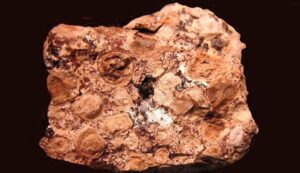
In January-July this year, Ukraine increased imports of aluminum ore and concentrate (bauxite) in physical terms by 5% compared to the same period last year, up to 6,772 thousand tons.
According to statistics released by the State Customs Service (SCS) on Friday, bauxite imports in monetary terms increased by 22.8% to $980 thousand during this period.
At the same time, imports were carried out mainly from Turkey (63.81% of supplies in monetary terms), China (28.64%) and Spain (7.54%).
Ukraine did not re-export bauxite in the same period of this year as in January-July 2023.
As reported, in 2022, Ukraine reduced imports of aluminum ore and concentrate (bauxite) in physical terms by 81.5% compared to the previous year – to 945.396 thousand tons. Imports of bauxite in monetary terms decreased by 79.6% to $48.166 million. Imports were mainly from Guinea (58.90% of supplies in monetary terms), Brazil (27.19%) and Ghana (7.48%).
In 2023, Ukraine imported 19,830 thousand tons of bauxite worth $2.360 million.
Bauxite is an aluminum ore used as a raw material to produce alumina, which is used to make aluminum. They are also used as fluxes in ferrous metallurgy.
Mykolaiv Alumina Plant (MAP) imports bauxite to Ukraine.